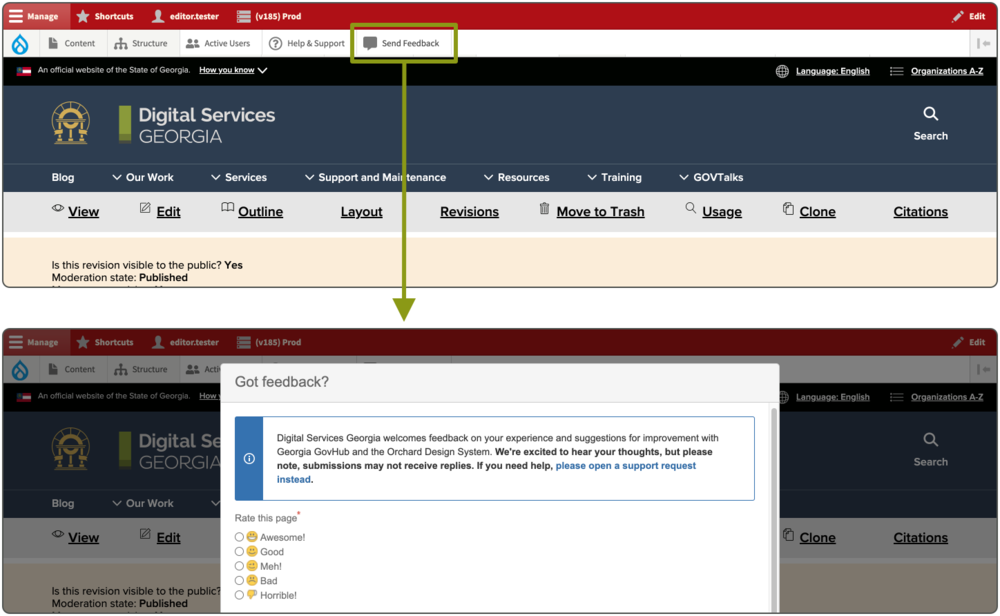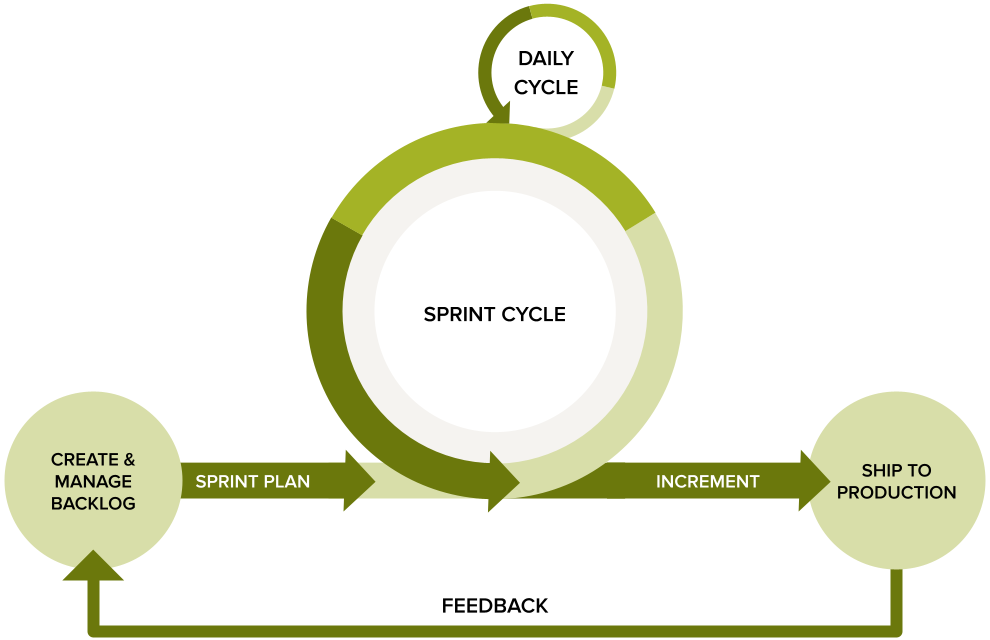
June 17, 2021
Closing the Loop: Why Your Feedback is Important

At this year’s GOVTalks, we spoke about how Digital Services Georgia uses customer feedback to drive GovHub forward into a more mature platform. What do we do with the feedback that we receive? And how do we work to ensure that the changes that we make to the platform benefit all of our content managers and our constituents?
First, we’re listening.
Now that we've been on GovHub for a while, we want to mature our entire digital presence as a state. We built the platform with a lot of experience from Drupal 7 and a lot of hypotheses about how we might make it a little bit better. But now that we've had GovHub sites online for a year or two, we're finding things that need to be tweaked, added, or improved.
We also study a lot. We study data. We study usage trends to figure out what we’re missing. We analyze issues sent to our support desk.
However, the most important information comes from content managers and your sites’ visitors. A content manager might say, "This feature isn't working for me," or a visitor might say, "I can't find the information I need." When we receive feedback, it helps us to understand what needs to happen.
We often ask for feedback through surveys or participating in tests. Those are things we're already investigating.
For issues that we don't already know, we want content managers to feel free to initiate the feedback with us. When you’re logged into your site, you can fill out and submit the “Send Feedback” form to let us know what you're thinking and what you're feeling about what you're doing.

So then what happens?
Remember, GovHub is a platform. It's not an individual website, so our work and our time has to benefit the platform rather than anything granular that would only impact one site. Once we receive your feedback, we need to evaluate the value that it delivers.
We evaluate the feedback often by testing it out and determining the scope of what’s needed. Sometimes we end up deploying a variation of the theme, rather than exactly what was requested.
In addition, we're responsible for more than just what you might see.
- About 30% of our time goes to what we call "lights on" work. We have to keep the platform running, functional, and secure.
- About 30% is devoted to bug fixes. Sometimes things break.
- The last 40% goes to new features or enhancements to existing features, and that's a result of most of the feedback that we receive from content managers.
We evaluate and prioritize this work based on a PRICE model.
"P" is for Policy: Who's requesting it and why?
“R” is for Reach: How many users or sites does this touch?
“I” is for Impact: What's the significance of the work? Is it a "nice to have" or is it an "absolute must-have" for the platform?
“C” is for Confidence: How sure are we that this will actually fix or improve the issue?
"E" is for Effort: How costly or timely will it be to implement this feedback?

According to PRICE, the highest scored work moves to the top of the list. Everything else goes into the backlog. We sort our work according to our ratio of "lights on," "security," and "enhancements." The top-scoring tickets make it into the sprint — a two-week cycle of work. At the end of that two weeks, we ship it to production, which means you can see it or use it on websites in the real world.
And then, the cycle continues: We evaluate feedback and we build our backlog.
Make your voice heard.
We understand if the logical next question is, "What if my feedback is not actioned?"
Maintenance cycles on the platform -- included as part of the GovHub subscription -- are used to benefit all sites. If your feedback is really granular to your site, that doesn't mean it's not valid. We still want to hear it. There may be a way to move forward with a potential professional services engagement.
So please make your voice heard. It all leads to positive changes for the user experience.
